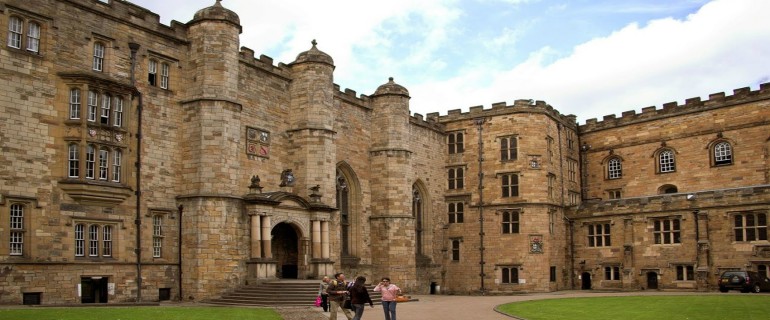
Why Study in Durham University
Durham's 11th-century Norman Cathedral was built between 1096 and 1130 and is one of the world's truly great buildings. Durham Castle, now part of the University, dates from 1072 and was the seat of the all-powerful Prince-Bishops who wielded secular and religious power over much of the North of England, with their own armies, system of taxation and coinage - until the end of the Prince-Bishopric in 1832 Durham was effectively a state within a state.
Durham University is distinctive - a residential collegiate university with long traditions and modern values. We seek the highest distinction in research and scholarship and are committed to excellence in all aspects of education and transmission of knowledge. Our research and scholarship affect every continent.
We are proud to be an international scholarly community which reflects the ambitions of cultures from around the world. We promote individual participation, providing a rounded education in which students, staff and alumni gain both the academic and the personal skills required to flourish.
Less than 1% of world’s business schools hold triple accreditations and the Durham University Business School is amongst this elite group that helps students develop their career as a world class business leader. The school offers undergraduate, postgraduate and post-experience programmes and is committed to recruit the most talented and enthusiastic students from across the globe
All undergraduate applications to the school require to be made through UCAS (Universities and Colleges Admissions Service) while you can apply for postgraduate study by registering on applicant portal of the business school and completing the required details
Before you Apply
Before you begin your application, it is crucial to get yourself updated with detailed information related to the programme you are going to pursue. All the programs combine academic excellence and incisive research and the school is steadfast about student’s eligibility to meet the specific entry requirements to the program. You must ensure about:
a) Admission requirements
b) Any other special requirements such as research proposals or successful completion of an interview
c) You can meet the financial requirements of the program
d) Guidance regarding personal statement, references & supporting documents
e) Course modules
Entry requirements
Undergraduate Program: Typical AAA level or 38 IB points
Postgraduate Program: An upper second class honours degree (2:1)
English language proficiency evidence, minimum IELTS overall 6.5 with no less than 6.0 in each element or TOEFL 92 or CPE Grade C, CAE 176 or PTE overall 62
Apply
Complete the application and attach the supporting documents (X and XII mark sheets, individual semester mark sheet or consolidated mark sheet, provisional or original degree), required personal statement and references, pay the application fee and submit the application.
Track the Application
You can keep yourself updated with the progress of application and any action request from the application team on UCAS Track (for undergraduate program) or your portal home page (for postgraduate program).
Receive your Decision
When the admission team will reach a decision, it will be updated on the UCAS Track or your portal and email you with the outcome. If the application is successful, you may receive conditional or unconditional offer letter. Accept the offer letter. In case of conditional offer letter, you have to meet the conditions stated in the offer letter to get your place confirmed
Apply for Visa
Gather your paperwork, renew your passport and apply for Tier 4 student visa to immigrate and study your program in the UK.
Qualifications or Eligibility Criteria for MBA in UK
- Candidates will normally be expected to hold a 2:1 Honours degree (which may be in any discipline) from a UK university, or an equivalent professional qualification from a similar non-UK institution.
- Non-graduates who possess extensive professional experience are encouraged to apply.
- Unlike many schools the OU fee includes the cost of books and study materials, accommodation and food at residential schools and tutorials, access to bespoke e-learning environment and project supervision as well as examination fees.
- The fee does not include any travel costs incurred to and from the residential schools or tutorials.